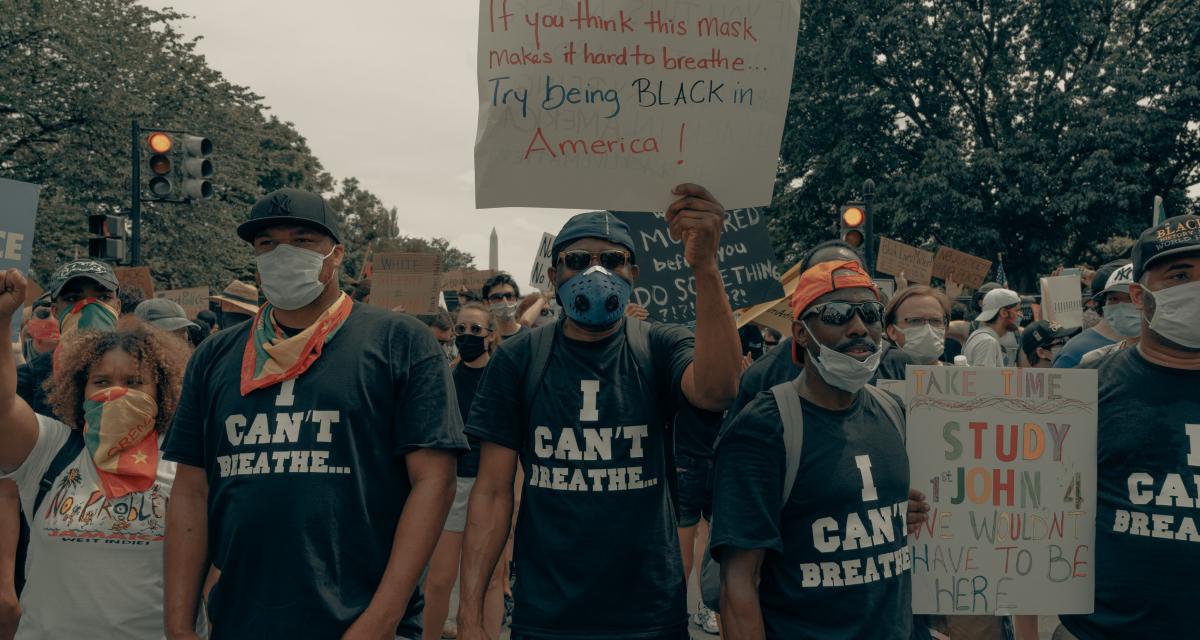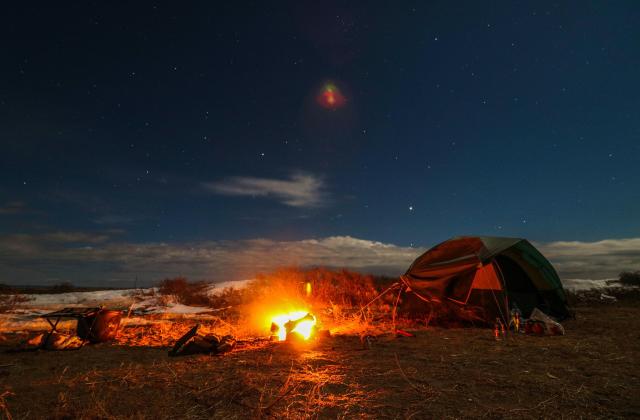One thing is for certain, in order to wholly live out the mission of the Society of the Sacred Heart, the collective Sacred Heart community must commit to the ongoing work of anti-racism. This work is never completed, but an extension of our call to love each day we walk this earth.
On the weekend of September 12, 2020, 18 members of the Sacred Heart family, formally known as the anti-racism planning committee, gathered virtually with the coordinating committee comprised of facilitators Patricia Chappell and Anne-Louise Nadeau (both Sisters of Notre Dame de Namur); Diane Roche, RSCJ; Meg Causey, RSCJ; and Bridget Bearss, RSCJ. This planning committee had planned to meet in March of 2020. The meeting was delayed due to the COVID-19 pandemic.
The group entered the weekend centered in the present moment, at a time when overt racism is on the rise, especially in the wake of a police officer murdering George Floyd. In an opening prayer, Sister Chappell read aloud George Floyd’s dying words. The group sat and prayed in silence, holding and honoring the emotions awoken by this man’s final cries. Some acknowledged they chose to avoid watching or listening to the video of Floyd’s murder because it just hurt too much. Others watched and listened in sorrow and horror.
Each participant shared in small groups following this prayer, and several offered their thoughts to the larger group.
Lauren Brownlee, an Associate; former Sacred Heart educator; and current Upper School Head Teacher at Carolina Friends School in Durham, said one moment that impacted her was when Sister Causey shared that she, herself, as a white woman, recognized that she was a part of the knee on the neck of George Floyd.
Remembering our history
Racism is not new. Police disproportionately murdering Black and Brown men, women and children is not new. What’s new is these acts of violence are captured on video. George Floyd’s murder has stirred the conscience of the collective human race in a different, more noticeable way. We as a planning committee honored each person’s perspective and reception of the moment we are in, particularly in the United States. We also recognized that it is a moment of great movement in the midst of social and political division. We knew, and know still, we must rise and continue to rise to meet the moment with informed and intentional action.
The Society in the USC Province has neglected to confront this concrete work in the past. In 2016, the Province began to look with new understanding at the historical fact that enslaved persons helped build several Network of Sacred Heart schools and that their forced labor provided food and other support for the students and nuns. The province acknowledged their complicity, and the structural consequences and harm done to Black and Brown persons, especially the descendants of those enslaved by the Society.
Holding this truth is vital, but it is not where we dwell. Our call now is to work to dismantle racism within our own structures. We are called not just to be against racism but to be actively anti-racist.
“Sister Joan Ewing reminded us that we must remain faithful to the One who has called us, as we pursue this work. I was deeply moved by this. As a Black RSCJ, her resolve filled me with hope,” said Ebony Rhodes, Director of Social Awareness and Community Relations at Carrollton School of the Sacred Heart.
Transformational anti-racist values
The planning committee, representative of the greater Sacred Heart family made a commitment to transformation, to truth, and in heart and soul to transformational anti-racist attitudes and values.
Racism in the United States is woven into the fabric of our social, familial, educational, political, economic and religious structures. It is clear then, in order to root out racism, to be anti-racist, the work must be done by each person on a personal level, and together as a collective to recreate the systems, which at present disproportionately harm and disempower those who identify as American Indian/ Alaska Native, Asian, Black, African American, Native Hawaiian/Pacific Islander or multi-racial as well as those of Hispanic or Latino ethnicity.* How then can we respond to this multilayered, intersectional, evil? The planning committee reviewed the transformational anti-racist values, a model that beckons an organizational structure to alter its process and policies in order to be anti-racist in every facet of its existence.
These values reflect:
- Both/and thinking with a bias toward action. Action is key.
- An abundant worldview (as opposed to a scarcity mentality) that uses resources responsibly, and where power is shared.
- Transparent communication guarding personal integrity, with emphasis on consensus decision-making. In action this means including and listening to the voices of impact before making a decision.
- Cooperation and collaboration, with a commitment to collective responsible relationships.
Next steps
The planning committee considered these values in recommending additional action steps for the USC Province to consider in the areas of administration, education, spirituality, justice and community life. Now, the coordinating committee and Provincial Leadership Team are working to operationalize these steps. Most notable from this meeting is the Province’s commitment to extend anti-racism education and training to more of the Sacred Heart family, seeking to include more alumnae/i, Associates, descendants of enslaved persons, educators, provincial staff, partners in mission and RSCJ in this work.
In the winter of 2021, three regional meetings will take place, either virtually or in person, in the California area; St. Louis, Missouri; and Washington, D.C. These meetings will be an intensive day-long workshop, aimed to cultivate a common understanding of systemic racism, internalized racial superiority (IRS) and internalized racial oppression (IRO), how these manifest in our respective contexts, and how these must be addressed in the various spaces and ministries where the Society of the Sacred Heart’s mission lives.
At the end of the weekend, Rhodes concluded, “I felt fortified by community, as pursuing anti-racist work in my everyday work can feel very isolating. I was encouraged that this process will bear fruit, because it is rooted in building authentic relationships and communicating with vulnerability and honesty.”
Brownlee added that she felt hopeful and that the commitment from everyone present felt real. As to moving forward, she said she’d love for there to be consideration about what accountability looks like for Sacred Heart schools.
Sister Patty and Sister Anne-Louise closed, emphasizing to the planning committee that anti-racism work is ongoing and never-ending. Decisions must reflect the voices of those impacted. Responsible action must be taken, on the personal and organizational level. Every facet of our Sacred Heart family must be involved in this transformational work. And we were reminded, again, to be anti-racist is to live the Sacred Heart mission of love.
Erin Everson is the communications coordinator for the United States – Canada Province.
*United States Census designated options for race and ethnicity.
Photo by Clay Banks on Unsplash




